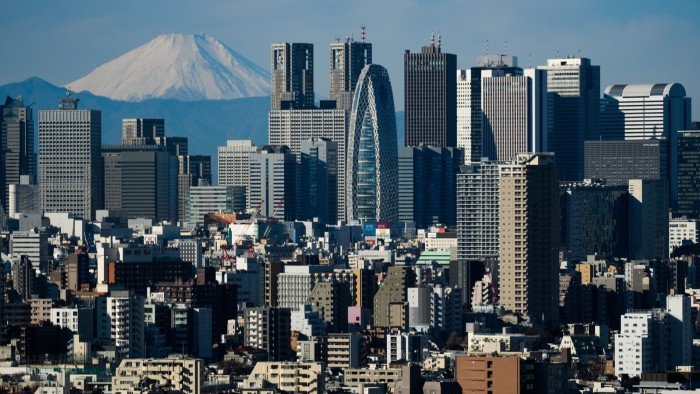Unlock the Editor’s Digest for free
Roula Khalaf, Editor of the FT, selects her favourite stories in this weekly newsletter.
In the heart of Tokyo, a modest hotel room now costs more than double what it did five years ago. As Japan experiences a historic tourism boom local hotel operators have emerged as some of the biggest beneficiaries. Yet sector shares continue to underperform.
Visitors to Japan reached a record high last year, with 36.9mn international arrivals, surpassing the pre-pandemic peak of 32mn in 2019. This surge has been fuelled in part by a weak yen, which continues to attract budget conscious travellers from around the world. The momentum has continued into this year, with January visitors hitting a monthly record.
Tourist spending in Japan reached a record ¥8.14tn ($56bn) last year, more than 50 per cent higher than 2023 and nearly double pre-pandemic levels. A large chunk of this flowed into the hotel sector, as the surge in visitors drove both occupancy and room rates to historic highs. In September, the national average hotel rate climbed 12.6 per cent to ¥19,381 per night, the highest ever for that month, according to analytics firm STR.
In Tokyo, average daily rates exceeded ¥26,000, more than double pre-pandemic levels. This pricing power, combined with strong demand, has meant record profits for local hotel operators. Earnings at companies with related business segments, including Japan Hotel Reit Investment Corporation, Tokyu Corporation and Resorttrust have improved in the past year.
Yet despite strong results, the sector’s shares have delivered underwhelming returns this year. A key source of concern is a sudden increase in regulatory scrutiny. Last week, the Japan Fair Trade Commission issued warnings to 15 popular Tokyo hotel operators for routinely sharing room rate and occupancy data. The regulator reckons the practice could violate Japan’s anti-monopoly law.
The fallout extends beyond individual operators. Regulators also urged two nationwide hotel associations to ensure their members adhere to competition laws, implying the watchdogs think information sharing may be widespread. Should broader investigations drive greater competition, this could place downward pressure on room rates.
At the same time, hotel operators are facing rising costs. Labor shortages, the result of Japan’s rapidly ageing population and shrinking workforce, are pushing up personnel expenses. And while the yen’s weakness boosts inbound tourism, it also makes imported energy and materials more expensive. Inflation, spanning everything from utilities to maintenance, is adding pressure to margins.
For now, the sector is enjoying an alignment of pricing power and strong demand. But as regulatory scrutiny intensifies and structural cost pressures rise, headline growth alone may not be a good guide to what lies ahead.
